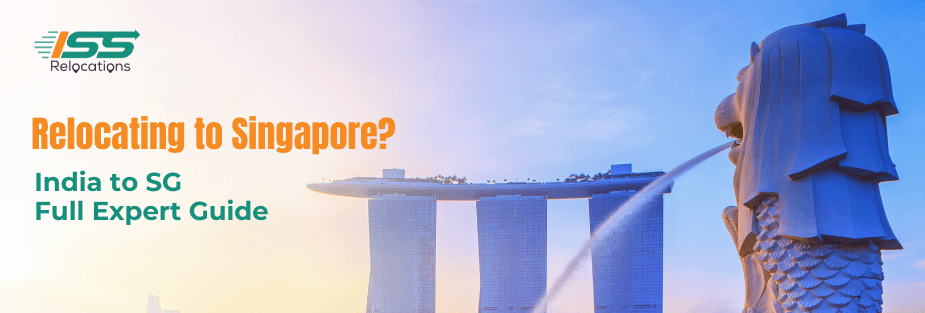
Emigrating to India: A Step-by-Step Guide for Foreign Nationals
Emigrating to a new country is an exciting yet challenging endeavor, requiring careful planning and preparation. India, with its rich culture, diverse history, and vast opportunities, has become an attractive destination for many foreign nationals looking to start a new chapter in their lives. However, navigating the complexities of emigrating to India can be overwhelming without proper guidance. In this step-by-step guide, we will explore the essential aspects of emigrating to India, providing valuable information and insights to help foreign nationals embark on a successful and hassle-free relocation journey.
Before delving into the details, it is crucial to emphasize the significance of a step-by-step guide specifically tailored to the needs of foreign nationals. The process of emigrating involves various legal, logistical, and cultural considerations that may be unfamiliar to individuals from different countries. A comprehensive guide not only offers clarity on visa requirements, housing options, and financial matters but also provides insights into the nuances of Indian culture, ensuring a smooth transition and integration into the new environment.
At ISS Relocations, we understand the challenges faced by individuals and families when relocating to a foreign country. As a leading relocation company, we specialize in providing comprehensive solutions to ensure a seamless relocation experience. With our expertise in handling the intricate details of international moves, ISS Relocations is dedicated to making your transition to India as smooth and stress-free as possible.
Understanding India as an Emigration Destination
India, often referred to as the land of diversity, offers a fascinating blend of cultures, languages, traditions, and landscapes. With a population of over 1.3 billion people, India is home to a vast array of ethnicities, religions, and languages. Embracing this diversity is an integral part of the Indian experience, making it a unique and vibrant country to call home.
Apart from its cultural richness, India boasts a thriving economy and numerous opportunities for growth and development. Over the past few decades, India has emerged as one of the fastest-growing major economies globally, attracting businesses and entrepreneurs from around the world. The country’s robust industries, such as information technology, pharmaceuticals, and manufacturing, offer promising career prospects for foreign nationals seeking professional advancement.
In addition to economic opportunities, India offers a high standard of living and a relatively affordable cost of living compared to other countries. With a diverse range of lifestyle options, from bustling metropolitan cities to serene rural areas, individuals can find an ideal place to settle based on their preferences and needs.
Some of the popular cities and regions for expatriates include Mumbai, Delhi, Bengaluru, Hyderabad, and Goa. These urban centers provide a vibrant social scene, excellent infrastructure, and a cosmopolitan environment that facilitates a smooth transition for foreign nationals.
Researching and Planning Your Move
A. Understanding Visa Requirements and Eligibility Criteria
One of the primary considerations for foreign nationals planning to emigrate to India is understanding the visa requirements and eligibility criteria. India offers various types of visas, including tourist visas, employment visas, business visas, student visas, and research visas, among others. Each visa category has specific requirements and conditions that must be fulfilled.
For instance, employment visas are issued to individuals who have been offered employment by an Indian company or organization. To obtain an employment visa, foreign nationals must provide necessary documents such as a job offer letter, employment contract, and educational qualifications. Similarly, research visas require documentation related to the research project and affiliation with a recognized Indian institution.
B. Researching and Choosing a Suitable City or Region to Settle In
India is geographically vast and culturally diverse, offering a wide range of options when it comes to choosing a city or region to settle in. Factors such as job opportunities, cost of living, climate, proximity to amenities, and lifestyle preferences play a crucial role in this decision-making process.
To make an informed choice, it is essential to conduct thorough research on potential cities or regions. Online resources, such as government websites, expatriate forums, and real estate platforms, can provide valuable information about different locations in India. Taking into account factors such as career prospects, educational institutions, healthcare facilities, and safety can help in narrowing down the options and selecting a city that aligns with personal priorities.
C. Finding a Reliable Relocation Company like ISS Relocations
Relocating to a new country involves numerous logistical challenges, from shipping personal belongings to navigating customs regulations. Employing the services of a reputable relocation company like ISS Relocations can significantly ease the burden and ensure a smooth transition.
ISS Relocations specializes in providing comprehensive relocation services, including packing, transportation, customs clearance, and unpacking of belongings. With their expertise and knowledge of local regulations, they ensure that all legal requirements and paperwork are handled efficiently, allowing individuals to focus on settling into their new surroundings.
Preparing Your Finances
A. Understanding the Cost of Living in India
Before emigrating to India, it is essential to have a clear understanding of the cost of living in the country. The cost of living can vary significantly depending on the city or region chosen, with metropolitan areas generally having a higher cost compared to smaller towns.
Major expenses to consider include accommodation, transportation, food, healthcare, and daily expenses. Rental prices for housing can vary widely, with factors such as location, size, and amenities influencing the costs. Transportation expenses encompass public transportation, fuel costs, and vehicle maintenance.
Food costs in India can be relatively affordable, especially if one opts for local produce and street food. Healthcare expenses vary depending on whether individuals opt for public or private healthcare facilities, with private healthcare generally being more expensive.
B. Setting Up a Bank Account in India
Setting up a bank account in India is an essential step for managing finances and conducting day-to-day transactions. Foreign nationals have various options when it comes to opening a bank account in India, including non-resident external (NRE) accounts, non-resident ordinary (NRO) accounts, and foreign currency non-resident (FCNR) accounts.
NRE accounts are suitable for individuals who earn income outside India and want to keep their funds in Indian currency. NRO accounts are designed for individuals earning income in India, such as rent or dividends, while FCNR accounts allow for maintaining foreign currency deposits.
The process of opening a bank account in India typically involves providing necessary identification documents, proof of address, and completing the required application forms. It is advisable to consult with a banking professional or utilize the services of a relocation company like ISS Relocations to navigate through the account opening process smoothly.
C. Tax Obligations and Implications for Foreign Nationals
Understanding the tax obligations and implications in India is crucial for foreign nationals to ensure compliance with the Indian tax system. Tax residency status plays a significant role in determining the tax liabilities of individuals residing in India.
The concept of tax residency is based on the duration of stay in India during a financial year. An individual who stays in India for more than 182 days in a financial year is considered a resident for tax purposes. Additionally, an individual who stays in India for 60 days or more in a financial year and 365 days or more in the preceding four financial years is also considered a tax resident.
Resident foreign nationals are required to pay taxes on their global income in India, while non-residents are taxed only on their income earned in India. Understanding the tax brackets, filing requirements, and exemptions available is essential for effective tax planning.
Securing Accommodation
A. Renting a Property in India
Renting a property in India is a common choice for expatriates, providing flexibility and convenience. When searching for rental properties, it is important to research and choose the right neighborhood that suits personal preferences and requirements.
Factors to consider when renting a property include proximity to work or educational institutions, safety, availability of amenities, and the overall ambiance of the neighborhood. Real estate portals, rental agencies, and local contacts can be valuable resources for finding suitable rental properties.
Lease agreements in India typically include details such as the duration of the lease, rent amount, security deposit, and maintenance responsibilities. It is advisable to review the terms and conditions of the lease agreement carefully before signing and seek legal advice if needed.
B. Buying Property in India as a Foreign National
Foreign nationals can also explore the option of buying property in India, subject to certain eligibility criteria and restrictions. The Reserve Bank of India (RBI) has defined guidelines for property purchase by non-resident Indians (NRIs) and persons of Indian origin (PIOs).
NRIs and PIOs are allowed to purchase residential and commercial properties in India, subject to specific conditions. It is essential to familiarize oneself with the eligibility criteria, documentation requirements, and legal considerations associated with property purchase.
Engaging the services of a reputable real estate agent who has experience working with foreign nationals can facilitate the property search and purchase process. ISS Relocations, with its extensive network and expertise in relocation services, can provide valuable guidance and support in finding suitable properties and navigating legal formalities.
Navigating Healthcare and Insurance
A. Overview of the Indian Healthcare System
Understanding the healthcare system in India is essential for foreign nationals to access quality medical care and services. India has a combination of public and private healthcare facilities, offering a wide range of medical treatments and services.
Public healthcare facilities, such as government hospitals and clinics, provide subsidized or free healthcare services. Private healthcare facilities, on the other hand, offer a higher standard of care but at a higher cost. It is advisable to have health insurance coverage to mitigate potential healthcare expenses.
B. Health Insurance Options for Expatriates
Obtaining health insurance coverage is crucial for foreign nationals residing in India. Several insurance companies in India offer health insurance plans specifically designed for expatriates.
When choosing a health insurance plan, it is essential to consider factors such as coverage limits, network hospitals, pre-existing conditions, and claim procedures. Comparing different insurance plans and consulting with insurance professionals can help in selecting the most suitable option.
C. Registering with a Healthcare Provider and Accessing Medical Services
Upon arrival in India, it is recommended to register with a healthcare provider or hospital to ensure prompt medical assistance when needed. Researching and identifying reputable healthcare providers in the chosen city or region is crucial for receiving quality medical care.
Registration with a healthcare provider typically involves providing necessary identification documents, completing registration forms, and paying registration fees, if applicable. Being aware of the nearest hospitals and clinics, emergency contact numbers, and available medical services is essential for quick access to healthcare facilities.
Settling In: Essential Services and Utilities
A. Setting Up Utilities in Your New Home
Upon securing accommodation, setting up essential utilities is a priority for a comfortable living experience. Utilities include electricity, water, and gas connections, which are necessary for daily activities.
Electricity connections can be obtained through the local electricity board or utility provider. The process usually involves submitting an application, providing necessary identification documents, and paying the required fees. Water and gas connections can be similarly obtained through the respective authorities or providers.
B. Obtaining a Mobile Phone Connection
Having a mobile phone connection is essential for communication and staying connected with family, friends, and colleagues. India has several mobile network providers offering a range of plans and services.
Choosing a mobile network provider depends on factors such as coverage, call and data rates, and customer service. To obtain a SIM card, foreign nationals are required to provide necessary identification documents, such as a passport and visa, and complete the necessary paperwork.
C. Registering with Local Authorities
Upon arrival in India, foreign nationals are required to complete certain registration formalities with local authorities. Two significant registrations are obtaining an Aadhaar card for identification purposes and registering with the Foreigner Regional Registration Office (FRRO).
An Aadhaar card is a unique identification document issued by the Indian government. Foreign nationals residing in India for an extended period may be eligible to obtain an Aadhaar card, which serves as proof of identity and residence.
FRRO registration is mandatory for foreign nationals staying in India on long-term visas. The FRRO serves as the primary agency responsible for monitoring the stay and activities of foreign nationals in India. Registration involves providing necessary documents, completing registration forms, and paying the required fees.
Education and Childcare Options
A. Overview of the Indian Education System
India offers a diverse education system, providing primary, secondary, and higher education options. The education system encompasses various boards and curricula, including national boards, state boards, and international education boards.
Primary and secondary education in India follows a structured curriculum, with a focus on academic excellence and extracurricular activities. Higher education in India includes universities, colleges, and specialized institutions offering undergraduate and postgraduate programs in various disciplines.
B. Finding Suitable Schools for Your Children
For foreign nationals with children, finding suitable schools in India is a significant consideration. Researching and understanding the admission processes, curriculum options, and language of instruction can help in selecting the right school for your children.
International schools in India cater to the needs of expatriate students, providing a globally recognized curriculum and language of instruction. These schools offer a multicultural environment and facilitate the integration of expatriate children into the education system.
C. Exploring Childcare Services and Daycare Options
For families with young children, exploring childcare services and daycare options is essential. India has a range of daycare centers and childcare facilities offering services for infants, toddlers, and preschool-age children.
Researching and visiting daycare centers, understanding their approach to childcare, and evaluating the facilities and resources available can help in making an informed decision. Local recommendations and online parenting communities can provide insights and suggestions regarding reputable daycare options.
Cultural Adaptation and Integration
A. Embracing the Cultural Diversity of India
India’s cultural diversity is one of its most fascinating aspects, offering a rich tapestry of traditions, languages, and customs. Embracing this diversity is essential for foreign nationals to integrate into Indian society and establish meaningful connections.
Learning basic phrases in the local language and familiarizing oneself with the local customs and traditions can go a long way in fostering positive interactions. Respect for cultural norms, such as dressing modestly in certain settings and being mindful of religious practices, is also important for cultural adaptation.
B. Joining Expatriate and Local Communities
Connecting with both expatriate and local communities can contribute to a sense of belonging and facilitate a smoother transition to life in India. Expatriate networks and social events provide opportunities to meet fellow foreigners and exchange experiences and advice.
Engaging in local initiatives, volunteering for community projects, and participating in cultural events can help foreign nationals forge connections with the local community. Building relationships with locals can provide insights into the local way of life, enhance cultural understanding, and create lasting friendships.
Conclusion
Emigrating to India is a life-changing decision that requires careful planning and preparation. This step-by-step guide has provided valuable insights and information for foreign nationals considering a move to India. From understanding the cultural diversity and economic opportunities to navigating visa requirements, securing accommodation, and settling into daily life, each aspect of the emigration process has been covered.
ISS Relocations, with its expertise in hassle-free relocation, can serve as a valuable partner throughout the journey. By offering comprehensive relocation services and expert guidance, ISS Relocations ensures a smooth transition and enables individuals to focus on embracing their new life in India.
Emigrating to India opens doors to new experiences, opportunities, and cultural immersion. With its vibrant culture, rich history, and economic growth potential, India has much to offer to foreign nationals seeking a new chapter in their lives. So, take the leap, embrace the journey, and explore the wonders of emigrating to India.
Plan Stress-free Move with Top Moving Company in UAE - ISS Relocations

Frequently Asked Questions
Which is the easiest country to migrate to from India?
Countries like Canada, Australia, the UAE, and Germany offer relatively easy migration paths for Indians due to skilled worker programs and student visa options. However, if you are looking to return or move to India, ISS Relocations provides seamless relocation solutions, including visa guidance, shipping, and settling-in assistance.
Which country do Indians immigrate to the most?
Indians predominantly migrate to the United States, Canada, UAE, Saudi Arabia, Australia, and the UK for better job opportunities, education, or lifestyle. However, many expats and NRIs also choose to return to India due to business growth, lower living costs, and cultural ties. ISS Relocations ensures a smooth transition for anyone emigrating to India.
Which country gives citizenship to Indians easily?
Countries like Canada, Australia, and Portugal have streamlined citizenship pathways for skilled workers, investors, and students. India does not offer dual citizenship, but it provides Overseas Citizen of India (OCI) status, which grants lifetime residency and employment rights. ISS Relocations can help you with the entire process of returning or relocating to India.
What is the main reason for migration in India?
The primary reasons for migration in India include employment, education, business expansion, and family reunification. Many people also move within India for better infrastructure, lifestyle, and affordability. If you are an expat planning to emigrate to India, ISS Relocations offers expert moving and settlement services to make the transition easier.
Why should people move to India?
India offers a low cost of living, a booming economy, diverse job opportunities, and rich cultural heritage. Expats and NRIs moving to India can benefit from affordable healthcare, strong family networks, and investment opportunities. With ISS Relocations, your move to India becomes a stress-free experience, with expert logistics, documentation, and relocation assistance.
Which type of migration is highest in India?
In India, internal migration is the highest, with people moving from rural to urban areas for jobs, education, and better living conditions. International migration is also significant, with many NRIs returning to India for business or retirement. If you are planning to move to India, ISS Relocations provides customized moving services to ensure a smooth and hassle-free relocation.
Why do people move from place to place in India?
People move within India for career growth, better lifestyle, education, and affordability. Many also relocate due to family commitments or business expansion. If you are planning to relocate to India, trust ISS Relocations for end-to-end moving solutions, including packing, shipping, customs clearance, and settling-in services.
Ready to emigrate to India? Let ISS Relocations handle the logistics while you focus on starting your new journey in India. Contact us today for a free consultation!
Moving Company - Recent Blog
Stay informed and prepared for your next move with our latest blogs on moving services in the UAE. From expert packing tips to international relocation guides, ISS Relocations brings you up-to-date insights to make your moving experience smoother, safer, and stress-free.










